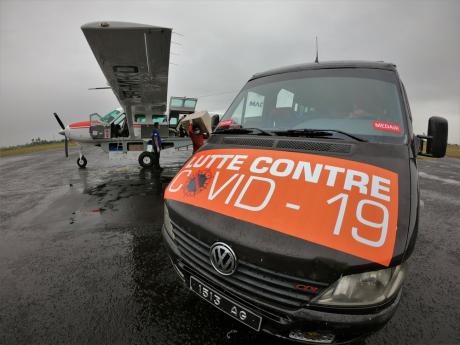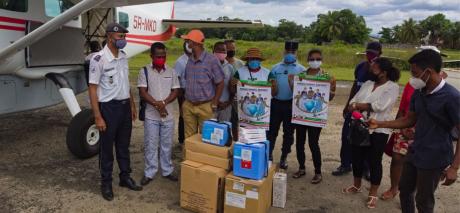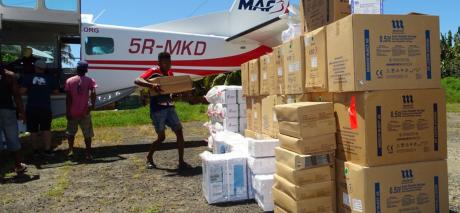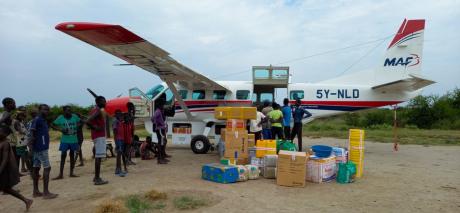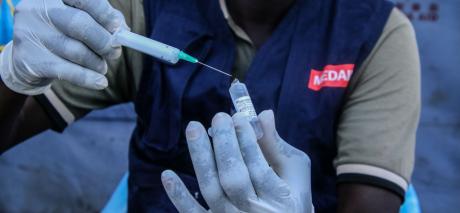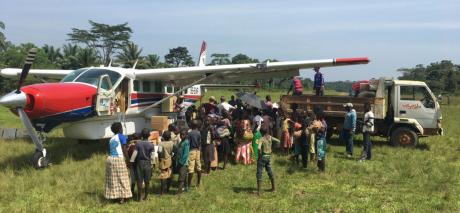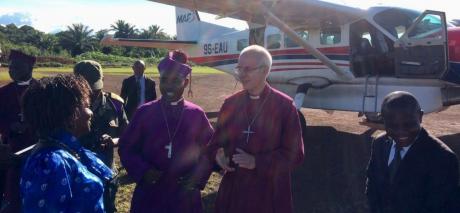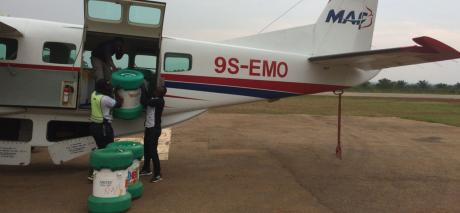During 2020 and 2021, MAF assisted medical teams, governments and NGOs in their pandemic response activities. For every MAF flight we implemented infection control procedures to prepare each aircraft, and our engineers designed and organised manufacture of crew screens to separate the pilot and passengers on flights to reduce contact.
Our flights supported Covid testing and education for isolated communities, and in some programmes we flew patients (with appropriate safety measures in place) needing hospital care. We prepared for and supported the distribution of some vaccines to isolated communities, though national supplies were very small for the countries where we operate.
In Liberia
One of the first flights we did was in Liberia in March 2020, taking a medical team to Zwedru to test a patient with suspected Covid-19. Without the one-hour flight they would have had a 40 hour round trip to reach the patient and carry out the test.
In Timor-Leste
As a result of the pandemic, the region of Oecusse, in Timor-Leste, was cut off from the rest of the country as the Indonesian border closed and the sea ferries stopped running. MAF, in collaboration with Oxfam, was able to ensure 14,350 households in Oecusse received vital sanitation supplies and education about Covid-19.
In Papua New Guinea
In Papua New Guinea high frequency (HF) radio was used by our MAF Technologies team to educate, reassure, and provide clarity to numerous communities that have no access to the internet or printed news, but who were hearing rumours of the devastation caused by Covid-19 globally. This included hosting a live two-way broadcast via their HF radio service, enabling Dr James Gahare to answer questions from health workers within the remote communities.
In Tanzania
In Tanzania, as part of our monthly medical safari schedule, we transported Covid vaccines along with the usual vaccines offered during clinics. However, the medical teams encountered hesitancy concerning the new vaccines, having heard rumours about possible side-effects.
